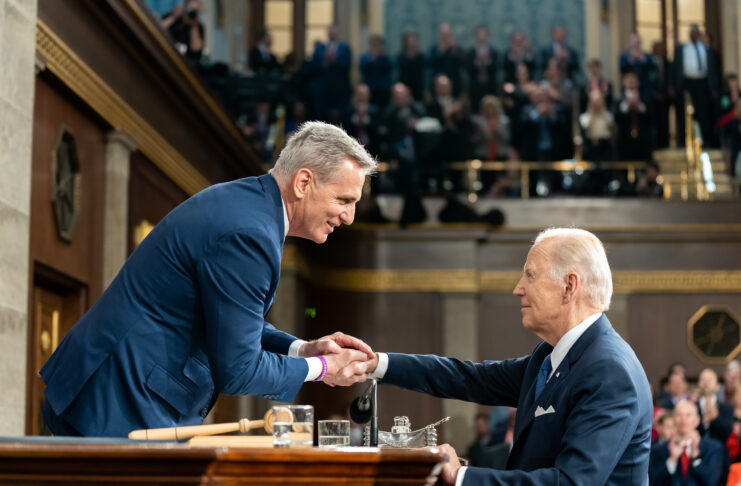Just in case we forgot: Congress is busy working on spending bills for next year's federal budget. While the worthies are supposed to mute spending, at least according to the budget agreement hatched a few weeks ago to avoid a debt default, whether such restraint actually occurs is an open question. (RELATED: Congressional Watchdog Reveals Effective Ways To Immediately Slash Spending. Will Anyone Listen?)
It shouldn't be. And a recent long-term budget outlook from the Congressional Budget Office demonstrates why.
Using that June 3 budget agreement as the baseline for future projections, the CBO says there is a glimmer of hope about future federal deficits. The problem is that glimmer quickly disappears into an abyss of red ink. The major culprit – the cost of servicing all that debt is going up:
…the deficit equals 5.8 percent of gross domestic product (GDP) in 2023, declines to 5.0 percent by 2027, and then grows in every year, reaching 10.0 percent of GDP in 2053. Over the past century, that level has been exceeded only during World War II and the coronavirus pandemic. The increase in the total deficit results from faster growth in spending than in revenues. The primary deficit, which excludes interest costs, equals 3.3 percent of GDP in both 2023 and 2053, but the total deficit is boosted by rising interest costs.
Granted, interest rates will change over the next few years (and certainly over the next few decades). Interest rates may fall, or rise. Whichever direction, that will affect debt service payments and by extension, funds available for other government programs. So hope for the best and full speed ahead, right?
Nope. Regarding the debt, CBO says:
By the end of 2023, federal debt held by the public equals 98 percent of GDP. Debt then rises in relation to GDP: It surpasses its historical high in 2029, when it reaches 107 percent of GDP, and climbs to 181 percent of GDP by 2053. Such high and rising debt would slow economic growth, push up interest payments to foreign holders of U.S. debt, and pose significant risks to the fiscal and economic outlook; it could also cause lawmakers to feel more constrained in their policy choices.
This should be self-evident: Current spending choices have long-term consequences. Particularly when those choices involve more debt-financed spending. But apparently, it's beyond the capacity of our current political class to understand that their actions affect future generations.
We can lay part of the blame on those entitlement programs Republicans and Democrats –refuse to address:
Spending on the major health care programs and Social Security—driven by the aging of the population and growing health care costs—also boosts federal outlays significantly over the next 30 years.
But for purely political (and career) reasons, these programs are out of bounds, off the table, beyond discussion. Hardly profiles in courage. Never mind fiscal restraint. (RELATED: Calling Out GOP Hypocrisy When It Comes To Military Spending)
You can read the entire CBO report here.
The opinions expressed in this article are those of the author and do not necessarily reflect the positions of American Liberty News.
READ NEXT: Don't Crash The US Auto Market By Forcing Us To Buy EVs



RINO actions as always
Biden added a ton to the debt.
And thanks to these mindless elite politicians, the American people are SCREWED, business as usual.